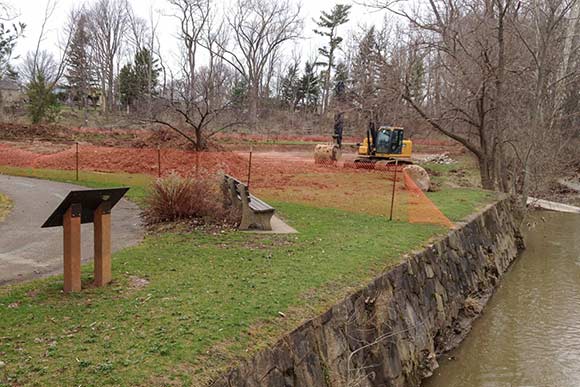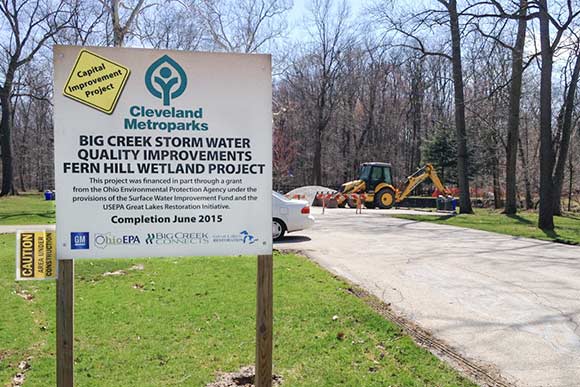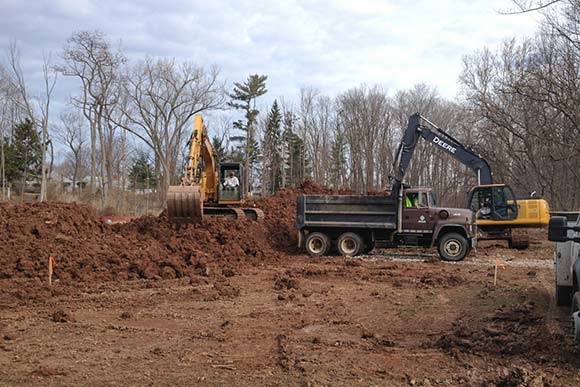New wetland to help improve Big Creek water quality
In an effort to improve one of Big Creek's influents, the city of Parma, Cleveland Metroparks, and Big Creek Connects have united to create the Fern Hill Storm Water Treatment Wetland. The one-acre natural habitat that will capture, slow and infiltrate flow from a 36-inch storm water outlet that eventually feeds Big Creek, which is the third largest tributary to to Cuyahoga River. Currently, the water drains over 50 acres of an adjacent residential neighborhood.
"The project is directing some storm water runoff from residences and redirecting that water into a newly created wetland," says Jennifer Grieser, the Cleveland Metropark's senior natural resource manager for urban watersheds. The new wetland, which will be in the Fern Hill picnic area in the Big Creek Reservation in Parma, will also improve water quality.
When storm water runs over residential areas, it is exposed to lawn chemicals, road salt and a host of automotive residuals. Diverting that water to the wetland will eliminate that exposure, slow its flow into Big Creek and create a natural habitat for flora and fauna.
"The wetland will have different depths," notes Grieser. "A small area will hold water, but in other areas the water will soak in. That gives space for a wide diversity of plants, everything from flowering perennials and sedges to native shrubs and decorative smaller trees like redbuds."
While Grieser expects to see a larger variety of birds and butterflies in the area courtesy of the new wetland, which she welcomes, she also has concerns about another prevalent wildlife that's often destructive: deer.
"We're going to try to protect some of the trees and shrubs with fencing," says Grieser, "But it will be hard to protect everything in there, so I'm sure the deer will enjoy some of that plant material."
Funded by a $149,000 grant from the Ohio EPA’s Surface Waters Improvement Fund and a $5,000 gift obtained by Big Creek Connects from General Motors, the city of Parma is the lead on the project, but the Metroparks is managing it. Work was originally slated for 2014.
"We bid it out last year," says Grieser. "We only received one bid: $399,999, so we couldn't proceed with it."
In order keep the project within budget, Grieser and her team worked with the Metropark's in-house site construction crew to do the excavation work.
"Were right in the middle of the project right now," reports Grieser. "Construction started in March with primarily the excavation of the Big Creek flood plain to create the wetland. Planting will start mid-May."
As is so often the case when dirt and pipes are excavated, the crew unearthed a surprise. The 36-inch storm sewer at the heart of the project was identified early on as having running water when it should not: during dry periods.
"We worked with the Northeast Ohio Regional Sewer District, which investigated that and discovered there was a leak in Cleveland's water supply. They will be addressing that," notes Grieser.
"The project has already had an impact toward better water quality before we even finished."




